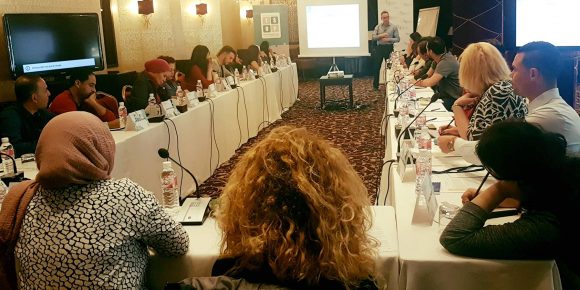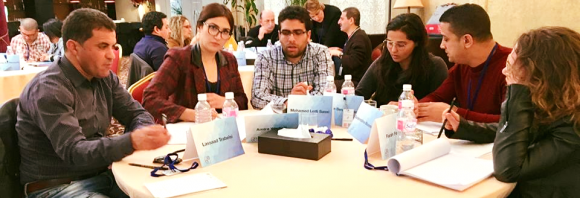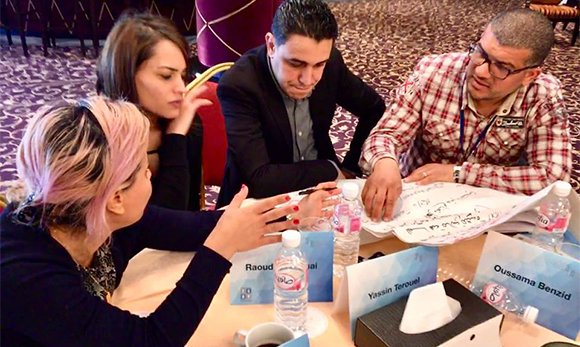Interview: Giving young people a voice in Tunisian politics

In Tunisia’s recent parliamentary elections, 53 participants of the Tunis School of Politics (TSoP) were elected to Parliament. TSoP is a space for young politicians to come together in a multiparty setting to learn the skills and knowledge that they need to go further in their political careers. This is a great achievement for the Centre des études méditerranéennes et internationales (CEMI), who run TSoP with support from NIMD and Demo Finland.
We speak to CEMI’s Director, Ahmed Driss, on what this means for Tunisia’s democracy and the country’s youth.
NIMD: Tunisia’s parliamentary elections saw 40 TSoP participants gain seats. How did TSoP help them to prepare for their campaign?
Ahmed Driss: TSoP’s curriculum is made up of three fundamental pillars:
- knowledge
- skills on political party organization
- individual skills such as communication.
Preparing for election campaigns is part of the individual communication skills that we teach, such as how to address an audience.

In addition, we held a number of extra classes – outside of the normal curriculum – on how to campaign for an election. The participants were therefore able to pick up skills linked to campaigning such as public speaking, and speech and manifesto writing. This, of course, benefitted TSoP participants who ran in the parliamentary elections.
But it wasn’t purely about campaigning skills. The political knowledge that students acquire through the school, and their understanding of the various issues related to the Tunisian context, means that their political parties chose them to head election lists.
I should also add that some TSoP participants, who were already members of the previous Parliament, were able to retain their seats. Some of them have actually been parliamentarians since 2011, first within the Constituent Assembly, then the first Parliament (2014-2019), and now back in the new Parliament in 2019.

NIMD:What values and democratic behaviours does TSoP aim to instil in its participants?
Ahmed Driss: We try to instil a democratic culture in our participants. This goes beyond the traditional understanding of democracy as a political system and the rule of law. Participants also need to understand values such as integrity; how to bring about change through peaceful means; and respecting minorities and people who are different.
We insist on this democratic culture through several activities, from training to dialogue sessions. As a result, students who complete the full curricula are convinced of the values linked to the rule of law, as well as the democratic values based on respect and acceptance of others.

The various groups that we have trained also try, with the knowledge that they acquire, to transfer these values to other people within their own political parties and to play a “multiplier” role for this democratic culture.
Then there is the fact that these young people have worked in a multiparty setting. Through TSoP, they have learned to respect different opinions. TSoP brings people from very different ideological backgrounds together and helps them work together for the good of the country.
We help participants understand that the national interest goes beyond the interest of parties. TSoP allows this type of exchange between people from opposite cultures with opposite views on societies. They sit and work together to produce shared visions for the future of the country.

NIMD: Why is youth political participation important?
Ahmed Driss:The majority of Tunisia’s population is youth. If young people don’t participate, it means that a huge chunk of the population does not relate to what is happening in the country. This doesn’t stimulate change.

By taking part in TSoP, young people could see that, when they participate in politics, they really do have the means to change things. The newly elected TSoP participants are currently changing the political landscape, which they may not have identified with previously. If this new political class manages to better address the needs of young people, this will encourage them to participate even more in future elections. It is important to see them involved in what is happening, so that they can promote change and stabilize democracy.